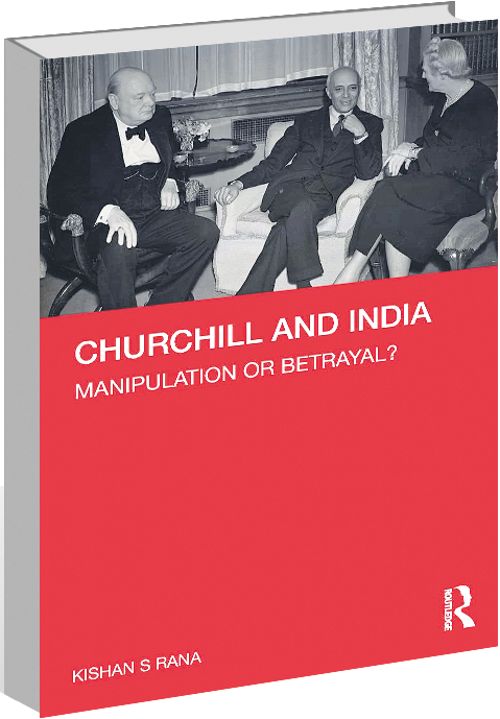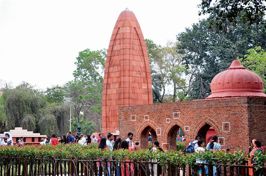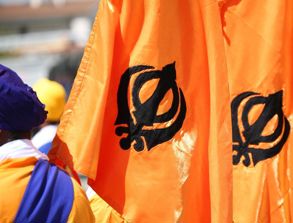Churchill and India: Manipulation or Betrayal by Kishan S Rana. Routledge.Pages 192. Rs 1,295
Book Title: Churchill and India: Manipulation or Betrayal
Author: Kishan S Rana
Salil Misra
If there is ever an honorific of an ‘imperialist par excellence’, it would surely go to Sir Winston Churchill. He wore his imperialism on his sleeve and never made any attempt to hide or even dilute it. He exemplified the 19th century European tendency, according to which there was something natural about a European country having a colony in Asia or Africa. It came very close to being seen as a ‘birthright’. It was considered as natural as it is for an upper middle class Indian today to employ a cook, a driver and a house cleaner. Even when this European ‘birthright’ became completely indefensible in the 20th century in the era of nationalism, Churchill still clung to it with a dogmatic and blinkered tenacity. About a year before his death in 1965, he told his daughter, regretting the fact that the great British Empire he believed in, no longer existed!
The book under review highlights the complex, troubled and intimate relationship Churchill had with India. He detested India, Indian politics, nationalist leadership and the nationalist struggle. Kishan S Rana, the author of the book and a distinguished diplomat, has told the story of Churchill’s visceral distrust of India. He has also gone into the major building blocks in Churchill’s ideational universe. Most importantly, Rana has told his story on the basis of sources and data emanating from Churchill himself. This lends great credibility to the book.
As it points out, there are four phases of Churchill’s India entanglements. The first phase, one in which he actually lived in India during 1896-98, was marked by a total disinclination to understand India. Churchill lived with a glib assumption that he knew all that was to be known about India. During the second phase — the 1920s and early ’30s — Churchill showed great anxiety about India getting a semblance of self-government or Dominion Status. He was completely against it and saw it as the beginning of the end of the British Empire. Churchill viewed the Dominion Status as a kind of a ‘forbidden fruit’. It was fraught with dangerous consequences, though it had its own seductive charms. Once tasted, there would be no going back. For this reason, Churchill was completely against the Government of India Act of 1935, which granted provincial autonomy and extended voting rights to 14 per cent of the population. Churchill did all he could to prevent the Bill from becoming an Act.
The third phase began with Churchill as the Prime Minister of England during 1940-45. This was the time when the European superpowers (and Japan) had plunged the entire world into World War II. During this phase, Churchill had to do a tightrope walk. On the one hand, all the energies and resources of India were to be harnessed for the war. But this was to be done without granting any measure of self-government to India. Winning the war was necessary in order to save the Empire. But there was the big risk of losing India, “the jewel in the British crown”, while winning the war. As Churchill saw it, it was like saving the British Empire by disintegrating it. The Atlantic Charter that he signed with Roosevelt in 1941 upheld the rights of the people to choose their governments and condemned the territorial expansion practised by the European states. But Churchill made sure that India was not included in the Atlantic Charter. He still saw India as an integral part of the British Empire.
This was also the period that witnessed the biggest blot on Churchill’s career. There was a famine in Bengal in 1943-44 that took 30 lakh lives. The Bengal famine was not caused by a drought or a failed crop, but by neglect and callousness on the part of the British. The Japanese takeover of Burma had blocked the supplies of grain from Burma to Bengal. Many grains were kept reserved for soldiers fighting the war. Fresh supplies could not be procured from outside because the ships were employed in the war. Some of the grain supplies were sent to Greece instead because Churchill thought that the semi-fed Indians could withstand food scarcity better than the Greeks! So, no attempt was made to address this great shortage of grains for Bengal, which cost 30 lakh lives. According to the book, a lion’s share must be accorded to Churchill in the list of culprits for this monumental tragedy.
The fourth phase started after the war when Churchill lost the general election in 1945 and some form of independence for India became a certainty. Out of power, Churchill still retained a keen interest in India. His formula for India was simple: if India were to break away from the Empire, it should be fragmented into three different units — Hindustan, Pakistan and Princestan. For Churchill, this was a ‘natural’ division of India. However, the Indian nationalist leadership was successful in preventing the separation of ‘Princestan’ but not the partition of India into two nation-states of India and Pakistan. Partition was yet another tragedy for India in which Churchill had a significant share. There is little evidence that he ever felt any remorse for the dreadful consequences of some of these policy decisions in which Churchill was involved.
This then is the story of Churchill’s India engagement. The story has been told lucidly and admirably by Kishan Rana. He may have originally wanted to write a story that would be kind to Churchill and fair to history. Soon he discovered that it was not possible. He could either be fair to history or kind to Churchill, but not both. To his credit, and in the interest of genuine historical enquiry, he chose to be fair to history.














